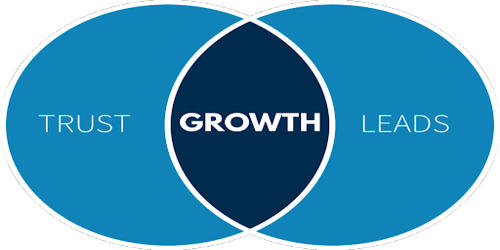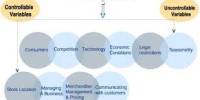When it comes to connecting with potential customers, there are few things more valuable than trust. Trust-based marketing is a marketing theory based on building consumer relationships through trustworthy dialogue and unbiased information. Trust is an essential factor in every business relationship. The concept of trust-based marketing may not be new to savvy marketers, but for wary customers, the idea that brands can be honest and forthright may be hard to believe. The concept was originated by Dr. Glen L. Urban, professor and former dean of the MIT Sloan School of Management. It is a term coined by Dr. Glen Urban that encourages trustworthy tactics and the dissemination of honest, unbiased marketing. Trust-based marketing focuses on customer advocacy techniques that assist consumers in making informed purchase decisions based on comprehensive marketplace options and equitable advice. Consumers recognize authenticity and sincerity and reward those brands with their business.
The theory contends that being honest and open is the best path to building consumer trust and creating a more loyal customer base. Companies that conduct underhanded marketing practices, make claims they can’t support or are generally sketchy in their advertising and promotions draw the wary eye of increasingly savvy consumers. This is said to give customers increased consumer power through Internet access to product information and competitive pricing. Companies that can market using honest and direct methods gain the respect, trust, and loyalty of their audience. Companies therefore can no longer rely on traditional models of “push marketing” in which a product’s positive attributes may mask unsuitable characteristics. The trust-based view of these critical business functions centers on creating relationships and being of help.
Traditional approaches to marketing, business development, and sales too often create an adversarial relationship between buyer and seller: one does to and the other is done to. For customers wanting to make an informed decision on a complex decision purchase, trust-based marketing is claimed to provide consumers with unbiased advice. Trustworthy behavior is far too complex to fake without beliefs and values behind it. The actions you choose every day are really just outcomes of the attitudes or beliefs you hold.
In business, the terms client-focus or customer-centric are commonplace. But these terms are all too often self-serving—they intend to be of economic benefit to the seller. The theory is that in competitive markets, companies need to approach their customers with respect and acknowledge that product and competitor information is easily accessible. “Trust-based marketing focuses on customer advocacy techniques that assist consumers in making informed purchase decisions based on comprehensive marketplace options and equitable advice.” When impartial and candid information is presented, a consumer’s loyalty towards the company increases, and greater lifetime profitability per customer will be achieved.















